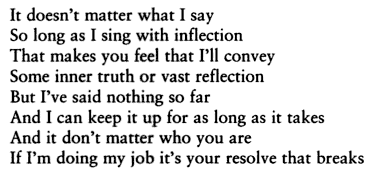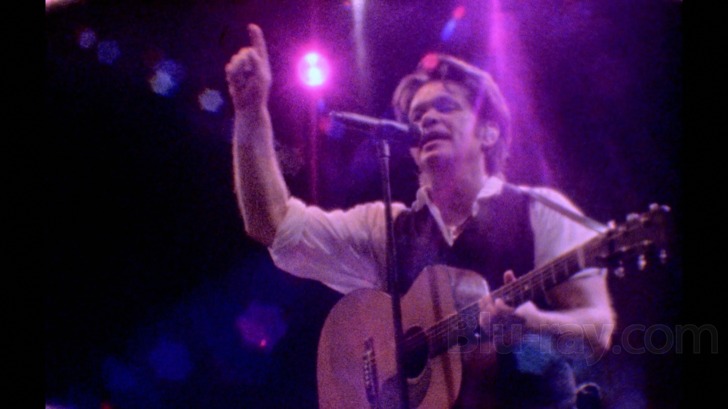
He thinks many of his songs don't do well commercially because they make people confront problems, like the plight of American farmers. "My manager went in and was talking to the record company, and the president of the record company - who I won't mention his name, but you could probably figure it out - said, 'I don't know why Mellencamp insists on having these singing with him," Mellencamp said on The Howard Stern Show in 2017 (via Ultimate Classic Rock). Mellencamp attributes it to a simple reason: it makes people feel good.

What do those Mellencamp collaborators have in common? They're African-American, and a Columbia Records executive had a problem with that. Seven years earlier, the singer had one of the biggest hits of his career with "Wild Night," a duet with Meshell Ndegeocello. That song appeared on his Columbia Records album Cuttin' Heads, of which the title track found Mellencamp performing with Public Enemy rapper Chuck D. In 2001, Mellencamp released the single "Peaceful World," a duet recorded with India.Arie. And after building up a long career and selling millions of albums, he has enough clout in the music industry to call it out when sees that kind of behavior go down.

With his work on Farm Aid and songs about the working class, it tracks that John Mellencamp doesn't care much for injustice or intolerance. The role instead went to some guy named Brad Pitt. According to a 2017 interview on The Howard Stern Show, Mellencamp says he turned down the role of hunky J.D.

(Despite the parallels to his real-life, the film is not biographical.) Mellencamp's first film could have come earlier, and might have made him into a star.
Pink houses john mellencamp meaning movie#
Written by Lonesome Dove author Larry McMurtry and actually directed by Mellencamp himself, this 1992 movie is about a country music star whose life is a mess to heads back to his Indiana hometown to get his head on straight. His biggest acting work to date (among about four movies) is his film debut: Falling from Grace. While those musical stars successfully branched out into this other form of entertainment, Mellencamp resisted the lure of pursuing silver-screen stardom. That’s where the song started.As a photogenic guy with millions of fans, Hollywood came calling for John Mellencamp the way it has for so many other well-known musicians, from Elvis Presley to Dolly Parton to LL Cool J. The singer saw an old black man “sitting on the porch of his pink shack,” Mellencamp recalled to Rolling Stone in 2004. On the surface, the song is a celebration of small town America, with Mellencamp even taking inspiration from his own hometown of Seymour, Indiana. CHORUS: - G C G Oh but aint that America, for you and me. Look no further than Mellencamp’s top ten hit ‘Pink Houses’. Hes got greasy hair and a greasy smile he says, F C G 'Lord this must be my destination.' Cause they told me when I was younger, 'Boy youre gonna be president.' F C But just like everything else those old crazy dreams G just kinda came and went. He kept his focus on small town America, and for those that weren’t paying terribly close attention, it seemed as though he was a champion for traditional conservative true-believers scattered across the midwest.īut that wasn’t exactly true. By 1983, Mellencamp had earned enough success to reinstate his birth name and write about whatever he wanted. The singer leaned into his Yankee appeal by naming his next album American Fool and producing a single about “two American kids growing up in the heartland” in the shape of ‘Jack & Diane’.

John Mellencamp was still Johnny Cougar when he broke into the mainstream with the 1978 effort ‘I Need a Lover’.


 0 kommentar(er)
0 kommentar(er)
